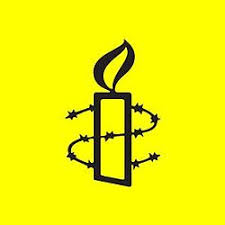Iran is Misleading the Public By Claiming Imminent Execution of Teenage Boy is “Lawful"

The Iranian authorities are making a mockery of juvenile justice and misleading the Iranian public by claiming that the scheduled execution of Amirhossein Pourjafar, a teenager who was arrested at 16 and is due to be executed tomorrow, is lawful, Amnesty International said today. The organization emphasized that international law absolutely prohibits the use of the death penalty against individuals who were below 18 at the time of the crime and reiterated its calls on the Iranian authorities to immediately halt the execution of Amirhossein Pourjafar and commute his death sentence to imprisonment.
Amirhossein Pourjafar was arrested and detained in April 2016 and sentenced to death six months later after being convicted of the rape and murder of Setayesh Ghoreyshi, a seven-year-old girl from Iran’s marginalized Afghan community. He was 16 years old at the time of the crime. He was transferred yesterday to solitary confinement in Raja’i Shahr prison in Karaj, in preparation for his execution at dawn tomorrow.
On 16 October 2017, the Prosecutor of Varamin, Tehran province stated that Amirhossein Pourjafar had reached the age of 18 according to the Islamic lunar calendar and therefore his execution will be lawful. This announcement followed an earlier statement from Amirhossein Pourjafar’s lawyer who made a public plea for a stay of execution on the grounds that he is 17 years old.
The discrepancy between the statements of the prosecutor and the lawyer stems from the use of two different calendar systems. Born on 16 December 1999, Amirhossein Pourjafar is 17 years and 10 months old under the solar calendar, which is the calendar officially used in Iran, but 18 years and 4 months under the Islamic lunar calendar, which is referenced in certain provisions of Iran’s Islamic Penal Code. However, the discussion over Amirhossein Pourjafar’s current age is not relevant in this case as there is no dispute that he was under the age of 18 at the time of the crime. The Convention on the Rights of the Chid, to which Iran is a state party, absolutely prohibits the use of the death penalty against individuals who were below 18 years of age at the time of the crime.
This is not the first time that the Iranian authorities have misled the public with regard to international standards on the use of the death penalty against juvenile offenders by focusing their public statements on the age of the individual at the time of execution rather than at the time of the crime. The authorities have created a false perception among members of the public and in the media that they comply with their obligations under international law by postponing the executions of individuals convicted of crimes committed when they were children until they have turned 18.
Sentencing an individual arrested as a child to death and keeping them on death row until they turn 18 to carry out their executions makes a mockery of juvenile justice. The Iranian authorities must stop this flagrant violation of international law and amend the Islamic Penal Code to abolish the use of the death penalty for offences committed by persons below eighteen years of age.
Background
Under Iranian law, boys aged above 15 lunar years and girls aged above 9 lunar years are presumed to be as culpable as adults when they commit murder and certain other capital crimes such as rape. However, since the adoption of the 2013 Islamic Penal Code, this presumption may be rebutted if it is proven that the juvenile offender’s “mental growth and maturity” at the time of the crime was in doubt. The criteria used for assessing “mental growth and maturity” are undefined and arbitrary. Judges may seek expert opinion from the Legal Medicine Organization of Iran (a state forensic institution) or rely on their own discretionary assessment.
In recent cases researched by Amnesty International, judges often focused on whether the juvenile offender knew right from wrong and could tell, for example, that it is wrong to kill a person. Sometimes, judges confused and conflated the issue of lesser culpability of juveniles, because of their lack of maturity, with the diminished responsibility of individuals with mental illness, concluding that the juvenile offender was not “afflicted with insanity”, and therefore deserved the death penalty.
This approach flies in the face of well-established principles of juvenile justice that individuals under 18 years of age are by definition less mature and culpable, and should never, therefore, face the same penalties as adults.
Instead of resorting to case-by-case ‘maturity’ assessments, which are by their very nature flawed and arbitrary, the Iranian authorities must comply with their international obligations toward children and end the use of the death penalty against all juvenile offenders immediately.
Amnesty International opposes the death penalty in all cases without exception regardless of the nature of the crime, the characteristics of the offender, or the method used by the state to kill the prisoner. The death penalty is a violation of the right to life and the ultimate cruel, inhuman and degrading punishment